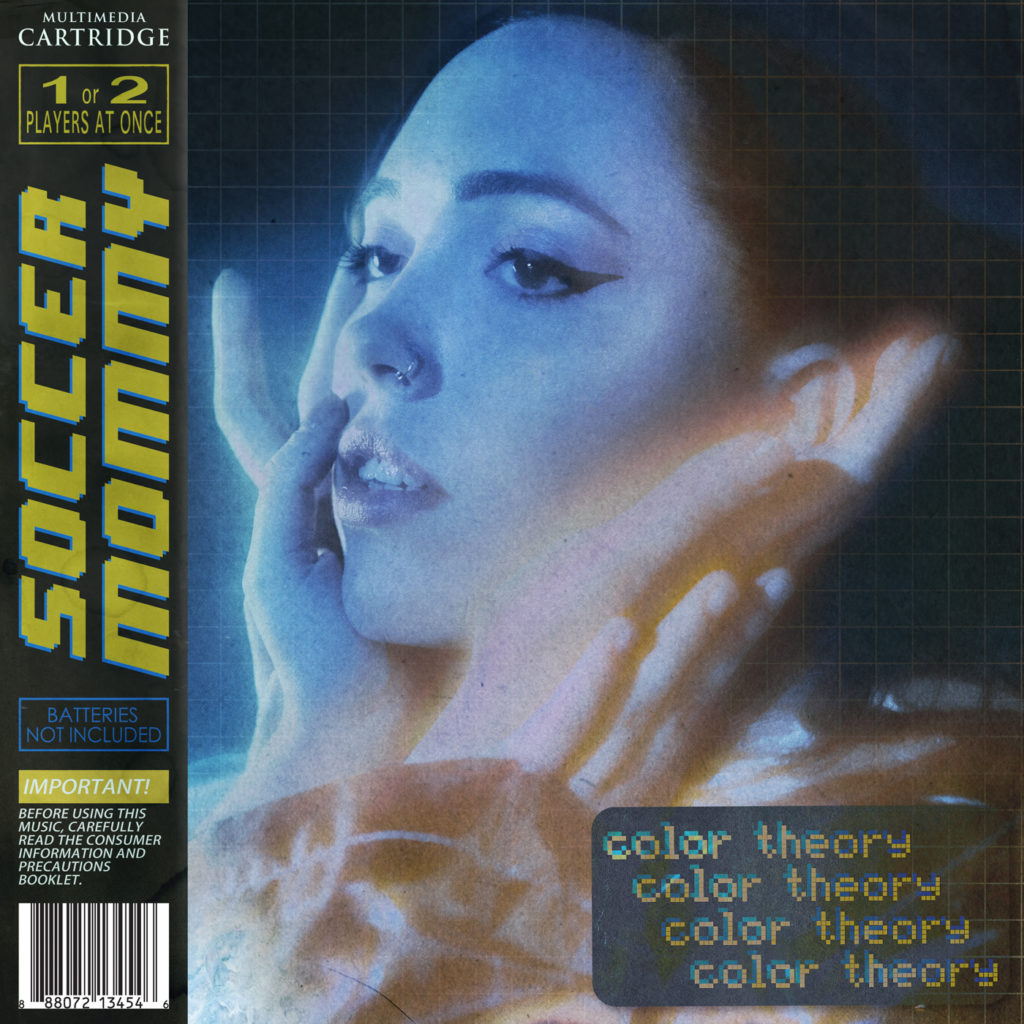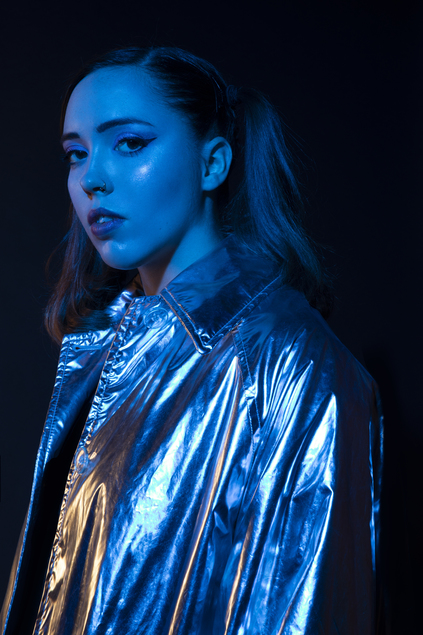Foto-© Brian Ziff
Sophie Allison aka Soccer Mommy veröffentlichte nach ihrem gefeierten Debütalbum clean im Februar ihre zweite Platte color therapy. Darauf verarbeitet die 22jährige Amerikanerin traumatische Themen wie Krankheiten oder Verlustängste auf brutal ehrliche und doch poetische Weise – eingepackt in moderne, perfekt arrangierte Popsongs.
Wir haben ein paar Tage nach dem Release kurz mit ihr telefoniert. Im Interview erzählt sie von der Welle der Meinungen, die sie am Tag der Veröffentlichung überrollte, warum sie sowohl Alters- als auch Geschlechter-Stereotypen nerven und wie sie das Schreiben dazu benutzt, sich und ihre Gefühle besser zu verstehen.

Congratulations on your sophomore album color theories — you’re getting a lot of praise from critics, are you reading your press at all?
I occasionally read reviews. If someone tells me one is very good, I’ll read it. But I get very particular about how I want them to say things and of course they can’t predict that. I can get a little irritated if I start reading reviews, if everything’s not perfect or exactly how I wanted it. So, I just stay away from it.
But you’re happy the album is out, and people can finally listen to it?
It feels great, I love the songs that are on this record. I was really excited for people to hear them and I was also anxious for release day. A release day is always a little bit of a nightmare, even if you get a bunch of good reviews. It’s just opinions being thrown at you the entire day. That’s very intense and stressful. It’s nice that it’s over and people can hear the record and get to know the songs a little bit.
Talking about opinions being thrown at you, it seems like your age often is part of the conversation. Do you have the feeling that young people are underestimated?
What I don’t like, what can be brought up a lot with young people’s music, is this idea of coming of age and nostalgia. It makes sense with an album like clean. It’s kind of a coming of age story. I don’t think it makes any sense with color theory. People feel the kind of things that I’m talking about their entire lives. That can be a little frustrating, when people lean towards the nostalgia element, when it’s not really nostalgia. Obviously, color theory has a ton of nostalgia, but I also see it with other albums: people talking about what they’ve been going through recently. And they’re still young, so people attach this nostalgia thing to it, even though it’s just about the fact that you are young right now. Obviously, I use nostalgia and I love using it, so that doesn’t bother me as much. But I do think there’s certain buzz words that get used a lot with young people’s music, that don’t always actually make sense for the music itself.

Another thing you would like to leave behind is the “female indie rock” genre box. It’s an interesting concept as there seems to be no “male indie rock” box.
I just think that this “women in indie music scene”, that’s been created by the media over the last two years, needs to go away entirely. I don’t want to a part of that group. There’s a lot of artists that I love that get pushed into that and there’s ones that I’m friends with. But there’s also people that I don’t know and just never met. Grouping women together into a giant club like that and referring to them as this group or as a unit of women that aren’t trying to create a unit takes away from the individual. It leads to literally people confusing us all with each other, grouping us all together, without really knowing the difference between us, even though there are large differences. I feel like women have struggles everywhere, but white women are not even getting the worst of it in the music industry. There’s a lot of more marginalized people, who could enjoy being lifted up by major media in a way that they’re trying to do with mostly white women who fit a beauty standard. That doesn’t mean that me and all these other musicians aren’t good or don’t deserve press, it’s just getting a little bit exhausting – this intense push for grouping everyone together and trying to uplift everyone together. I just think everyone can survive on their own.
You wrote color therapy on the road, yet it is a highly personal record that deals with rather dark topics: How does that go together, when did you find the time to dive into the dark places of your soul whilst traveling on long tours?
I did it all the time, I wrote in the back of the van, I wrote in the hotel room. Honestly, when clean came out and I was touring for a while, there was a long while where I was having a very rough time emotionally and mentally. It wasn’t like I had a bad night and it was fine for a week, it was more constantly hanging over my shoulders. I don’t think it’s hard to get into that head space, if it’s something that you’re dealing with a lot. You’re probably thinking about it all the time. When something is bugging me, it eats at me until I can find a way to say it right.

I have read that you described the writing and recording process as cathartic – when you see cclean as a first step and color therapy as a second step to some sort of closure, what comes next?
I don’t think writing is cathartic for me. A lot of problems that I wrote about on color therapy, they’re not gone. I don’t think, there’s any closure in finishing an album for me. Maybe, there’s a small bit, but it’s not really closure on an issue and I can let it go. It’s more that I feel like I now understand what I’ve been feeling, or I’ve been trying to say. I don’t know what’s next, we’ll just see.
Your lyrics are very poetic, but also brutally honest. It seems like they’re very direct and thought out at the same time. How directly do you write? Are there many revisions?
I don’t usually make many revisions. There are some songs that I tweak for a couple of weeks, until I can get it fully right. Sometimes, I’m tweaking one line for two weeks, because I don’t know what to do and it doesn’t feel right. But a lot of the times I write a song in 15 minutes and just be done and let it all come out. Let it feel like this natural train of thought, because it is. I think that’s a good way to capture that kind of feeling or directness. But it depends. Sometimes I feel like I can write a song and have this train of thought and flow through it lyrically and other times I need it to be very structured and very intentional in every lyric. And that’s when I usually start revising stuff a little bit.
Thank you for the interview!
Soccer Mommy Tour:
08.06. Hamburg, Molotow
09.06. Berlin, Frannz Club
11.06. Köln, Bumann & Sohn










